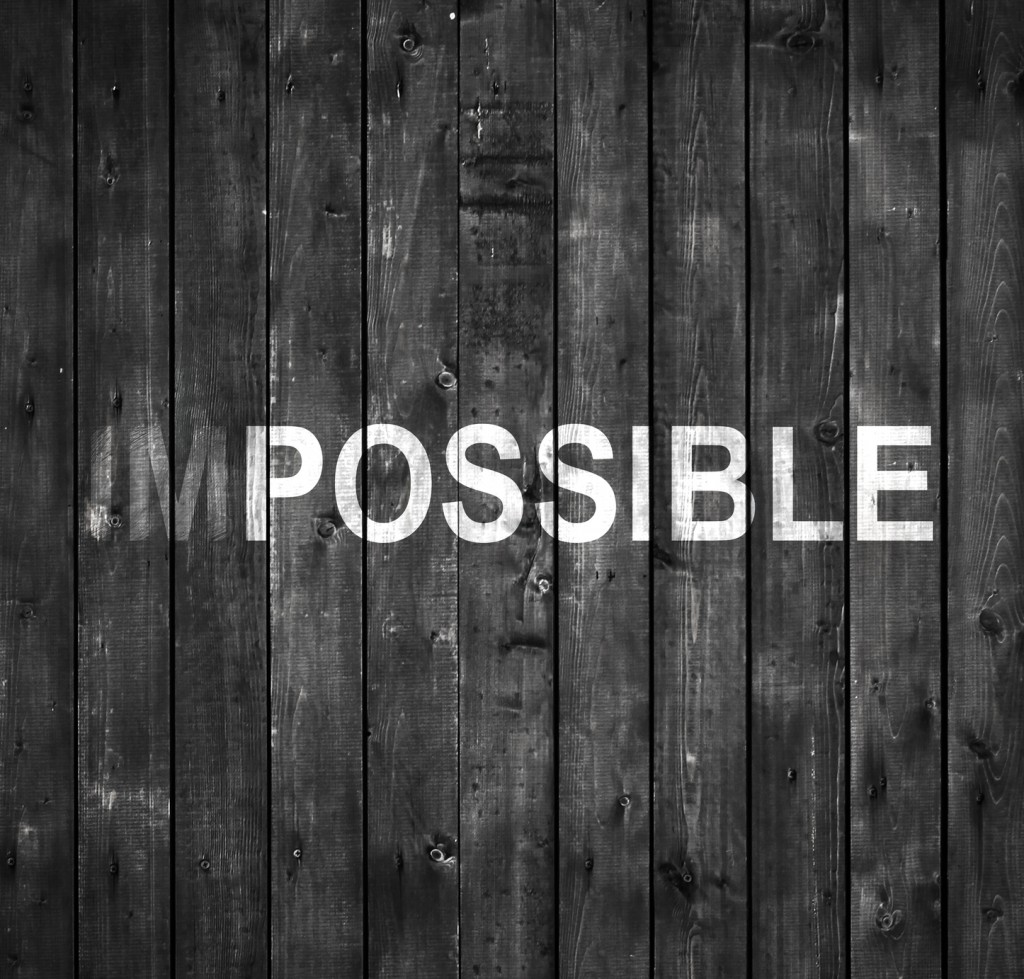 It’s that time of year…soccer goals and new year resolutions.
It’s that time of year…soccer goals and new year resolutions.
Before we all rush out and get ourselves a new set of goals/resolutions, I would like to pitch a few ideas…and ask a few questions.
Outcomes
What do you want?
This is the definitive question in LIFE…isn’t it?
Funny that…
You cannot answer…
Then how do you answer the same question on behalf of your child?
Forget about goals, key performance indicators and targets. Forget about success, failure and even money.
Let’s change the game…let’s stack the deck of cards to our advantage.
Let’s talk about OUTCOMES…
A desired state (wait for it…) what we want!
Even better…let’s set some outcomes for our children.
By setting outcomes we become aware of the difference between what we have and what we want…
Where we are and where we want to go.
The difference is the problem…but it’s where the MAGIC lives.
Gap Analysis
When you set a clear outcome you can plan to start the journey…and start to close the gap.
You become proactive…
Motivated…
When you do not know what you want, there are many people who are happy to set you their goals.
An outcome is not the same thing as goals or even training…a goal is what you want, an outcome is what you’re going to get and training is what you have to do to achieve it…to close the gap.
Do not train until you set your outcomes.
Problems cannot be solved unless you have an outcome in mind
Small changes that make all the difference
Starting from today I want you to talk to your child in terms of outcomes. Replace the word goals for outcomes.
Also replace the word “failure” with feedback.
As we already mentioned, we have a present state and our desired state. In between the two… we have the journey.
There are 4 basic questions you need to ask your child to make this journey successful.
- What are you moving towards? (the desired outcome) This could range from playing professionally and even trying to play for your country.
- Why do you want this? This will expose the values that guide your child. Please allow your child to answer!
- How will you get there? This involves the strategy and resources required.
- What if something goes wrong? This will identify risk management, contingency aka plan B.

Thinking
There are 2 aspects of outcomes;
- Outcome thinking- deciding what you want in a given situation. In this case, what you’re child wants out of the game.
- Outcome metrics- consistently thinking in outcomes and having a general direction and purpose in soccer.
Until you know what your child wants, what you do will be aimless and your results will be random at best. Outcome orientation gives you control, direction and eliminates the word failure. No matter what happens, you will always have an outcome. There is no failure or fear…just an outcome.
This is the main difference…linguistically talking about outcomes instead of goals puts you in the driver seat. It gives you direction and allows you to build momentum even when things start to get difficult.
The opposite of outcome thinking is problem thinking.
Problem thinking is what 99% of all soccer parents subscribe to and why so many kids quit the game.
This type of thinking has become an epidemic in today’s society.
Even at work…
Employees are constantly caught up in problem thinking.
They notice what is wrong…
Who to blame…
Problem thinkers can be heard asking questions like;
What’s wrong?
How long has it gone on for?
When did this start?
Whose fault is it?
Why haven’t you solved it yet?
This mentality focuses on the past. The one thing this type of thinking guarantees is stress, anxiety and a negative state of mind.
Think about it!
Would you perform better under the influence of stress, anxiety and fear?
Problem thinking makes the problem even harder to solve
How about your child?
Instead of pointing the finger and looking for people to blame, let’s re-structure the way we set goals.
How to Structure Outcomes
There are 7 questions you and your child will need to answer to construct your outcomes.
Once you’ve answered all questions, your outcomes- goals- will be realistic, achievable and last but not least…MOTIVATING
This process will work for you- and your child- not against you…
1. What do you want?
Do not roll your eyes…
What is it that you want?
More importantly…what does your child want?
When answering the first question, it is critical that OUTCOMES be expressed in the positive. This has nothing to do with positive thinking…
Positive here means “direct your attention to something you want”…not something you wish to avoid.
So ask your child,
“What do you want?”
This might sound simple…stating the obvious…but how many kids do you hear say,
“I do not want to make mistakes”
“I do not want to let the team down”
“I do not want to upset the coach”
These are negative statements…not goals.
How do you turn a negative statement into a positive outcome?
By asking,
“What do you want instead?”
2. How will you know you’re on track?
It is important to measure your outcomes and to evaluate progress.
You will need to monitor this for your child.
You need to provide the right feedback and in the right quantity and it must be accurate.
When you set outcomes with your child, you must think and identify how you will measure progress and with what precision.
You must have the ability to answer the following questions;
Are you on track?
How do you know?
Have you achieved your outcome and what do you see, hear or feel?
3. Where, when and with whom?
Pretty self explanatory – ask your child.
4. What resources do you have?
List your resources…
They will fall into 5 categories depending on your child’s outcome.
Objects- soccer gear, boots, magazines, online subscriptions and any other objects needed to obtain your outcome.
People- Soccer Coaches, friends and family can assist in achieving your outcome.
Role Models- Do you know anyone who has already achieved your outcome? Who can you talk to or listen to?
Personal Qualities- What qualities does your child have or need to develop to achieve the outcome?
Money- Do you have enough money to obtain your outcome?
“Who we are never changes…who we think we are does” Mary.S. Almanac
5. Sustainability- Can you start and maintain this outcome?
How much is under your direct control?
What can you do and what can your child do to achieve the outcome? What is necessary to close the gap?
Who will help?
6. How do your outcomes fit together?
If the outcome is BIG, list all the obstacles that prevent your child from getting it and set smaller outcomes to start the journey.
Ask yourself,
“What prevents us from achieving this outcome?”
7. What to do next?
Once you have tested your outcome through the following questions, then you are ready for action.
Goals Vs Outcomes
Most parents who have dipped their toes in goal setting have come across the acronym SMART.
S-Specific
M-Measureable
A-Attainable
R-Realistic
T-Time Specific
The only problem with using goal setting techniques like SMART is that you lose motivation…
You lose focus…
And as soon as you miss your goal you feel like a failure.
The Difference
Let’s be honest…
You may not always achieve your goals but you will always create an OUTCOME.
This is the change in mindset that’s required in kids soccer.
Would you be disappointed if you achieved a result of 90% of your intended outcome?
Of course not!
What if you were focused on goal setting instead of outcomes?
90% achievement would translate as a failure, missed goal or target, action item that cannot be crossed out…stumbling at the finish line.
The specificity of outcomes facilitates concentration on what you internally see, hear and feel. Your attention will direct itself toward external and internal resources necessary to achieve your outcome.
The change in linguistics –words and language- provides a clear path to move from your current state to a desired state.
This allows us to change the game…It’s no longer win or lose, black or white, up or down.
It becomes a journey…
Step by step we begin to close the gap…
This allows us to change failure to feedback and to map out the journey again until we arrive at our destination.
Leverage the power of language and replace goals with outcomes.
If you commit to the journey, it’s inevitable that one day you will reach your destination.
Closing Thoughts
As we reflect on another year and prepare for 2015 please remember this;
Your child’s success or lack of success in soccer does not indicate what kind of parent you are…
But having a child that is coachable, respectful and a great teammate is a direct reflection of your parenting.
You cannot hate the game and expect to make it…the only way to truly conquer something as every great philosopher and psychologists will tell you, is to LOVE it!
Happy New Year guys…
“May the winds of destiny blow you to the stars”




Quite an enlightening piece you have here, Thomas. Really got me thinking.
Very, very informative and substantial, I must say. 🙂
Growth Mindset
To develop a player to any level the key to that success is what is called a Growth Mindset. An invaluable resource is the book of the same name by Carol Dweck, well worth reading for further self education.
Once a coach is armed with the knowledge that psychology, growth mindset etc is vital to the development of a player how do they implement that into every session? Up until now there has been no definitive, no true guide of how to help a player with (emotional) control, commitment for example. The focus has always been on either the physical or technical corners, as they are the elements where progress can be visualised more easily over a shorter period of time.
Has a coach ever themed a session under the heading confidence? In over 20 years of being in the game at every level in the UK and overseas I have never witnessed a session where the plan was purely aimed at either a psychological or social element, such as being a better learner or able to concentrate for longer.
That has all changed. An evolution is happening on our doorstep and being facilitated in sessions at the Pre Academy in areas covering the northwest of England and several states in the USA. And the evidence of development so far is quite amazing.
You can find put more by visiting http://www.thefuturegame.co.uk – free 7 day trial.
Further, specific information on how this is being facilitated will be posted here and in other blogs over the coming weeks and months.
– See more at: http://thefuturegame.co.uk/blog/#sthash.lFPoKGqm.dpuf